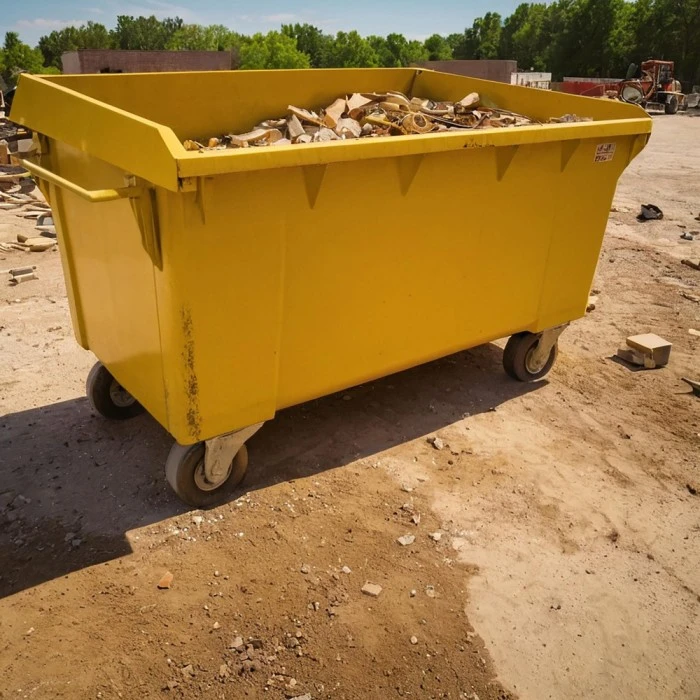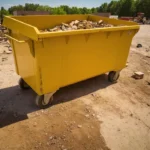Construction operations require the right Skip Bin for Your Construction Rubbish. It streamlines the processes of handling your constructed waste and keeps your site clean. This article is a complete guide on how you should choose the perfect skip, hence focusing mainly on skip bin options in Australia. From there, you will be well informed to make a decision for the enhancement of efficiency as well as reduced environmental impacts. Go further into details to get the right skip bin for your construction rubbishes in order to create a clean and more effective working place.
Skip Bin Sizes: How to Pick the Best Size for Your Project
Choosing the correct size skip bin is vital for waste management efficiency. Skip bins vary from size, 2 to 12 cubic meters. A 2 to 4 cubic meter can be available for the small works. For a bigger construction work, usually 6 to 12 cubic meters is required. The amount of wastes and the type of materials which will be disposed of have to be determined since overloading the bin means additional charges. A little bigger size can be taken for flexibility. Research local providers for the best skips in Australia for your project demands. Do the right thing and stay clean and compliant on-site.

Benefits of Skip Bins for Waste Disposal from Construction Site
Skip bins have quite a number of benefits that come with them when considering waste disposal from a construction site. First, the process is much easier as it saves time and labor. You can have a tidy and uncluttered site with a particular bin. They come in various materials ranging from concrete, wood, and even metal. Skip bins are also safe since they help remove hazards from the debris. Many providers ensure environmentally friendly practice, which guarantees proper disposal. Selecting the best skip bin helps in streamlining your construction processes as well as sustain your projects. For better waste management, get the best skips in Australia according to your construction site.
How to Prepare Your Site for a Skip Bin Delivery
Preparing your site for skip bin delivery smoothes the process. One needs to choose a well-surfaced and easily accessible location for the bin. In that location, there should be a level area that can hold the skip’s load. Take into account local restrictions about the placement, especially public roads. Make sure to pass on the issues, if any-that you have in the marked spot for delivery, to the service provider. It could be narrow spaces or low-hanging tree branches. Communicating your needs will ensure you get the right skip bin for your construction rubbish. Proper preparation ensures efficiency and a safe working environment throughout your project.
Understanding Different Types of Waste: What Can and Can’t Go in a Skip Bin
It is important to know what can and cannot go in a skip bin to avoid any form of non-compliance. Most skip bins take general construction waste such as wood, metal, and concrete. Hazards include, but are not limited to, asbestos, chemicals and batteries. Most companies with skip bins enforce these for the safe functioning of those facilities. Any hazardous material in that waste placed in the bins which is not authorized might accrue fines or liability to offenders. Separately collected for recycling purposes include any types of materials appropriate to separate. Knowing what is forbidden can ensure appropriate waste options are selected during any development project.
The Environmental Implications of Construction Waste and the Role of Skip Bins
Construction waste seriously affects the environment, and skip bins can help improve matters. With skip bins, responsible and recycling-friendly practices are enhanced. It assists in diverting the wastes from landfills and subsequently reduces pollution and natural resource depletion. Most suppliers provide environmentally friendly programs aimed at the proper processing of recyclable materials. A responsible skip bin can lower the environmental footprint of a project. Through green waste management techniques, overall project efficiency improves. Green contractors will always appreciate this, as the best skip bins in Australia will contribute positively to the environment but follow all regulations regarding the proper disposal of waste.
Choosing the right size of skip bin for the construction rubbish enhances efficiency as well as sustainability. It implies that one has knowledge concerning the sizes, benefits as well as the regulations entailed in efficient waste management. Proper preparation of the site and types of wastes, in turn, makes this process even smoother. Skips have come to be crucial for every construction site for it to cut down the environment footprint of the whole exercise. Know your skips options in Australia, and make a wise selection based on what will fit your needs perfectly. Every responsible waste management decision creates a better greener tomorrow.

